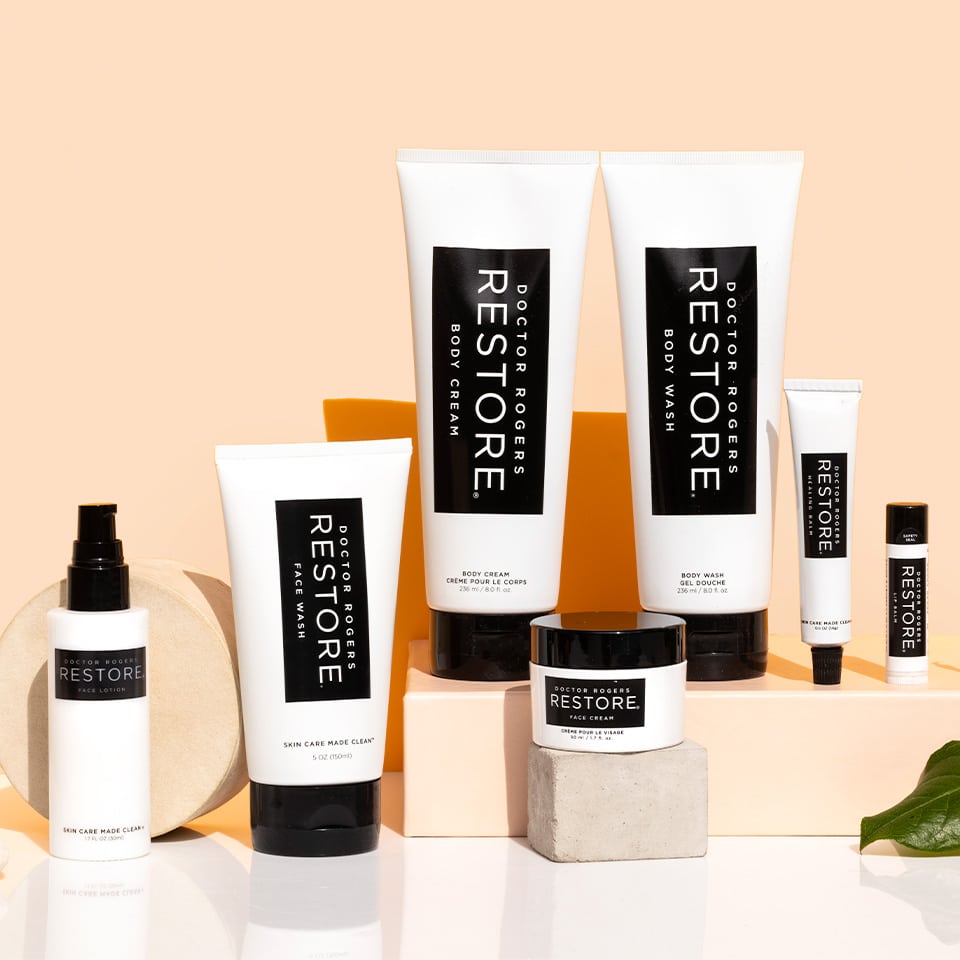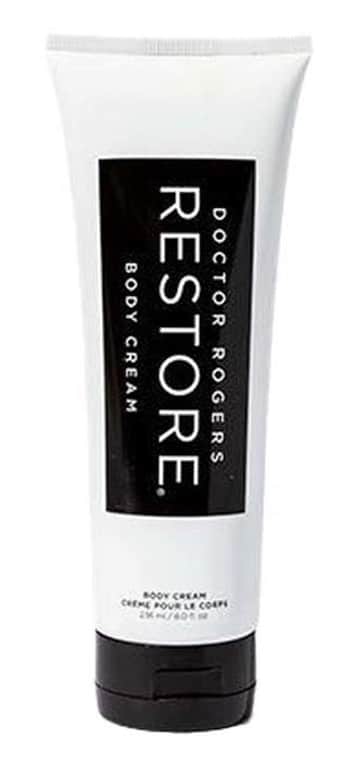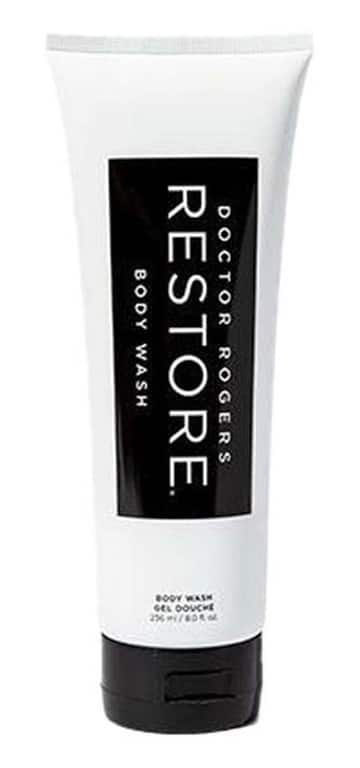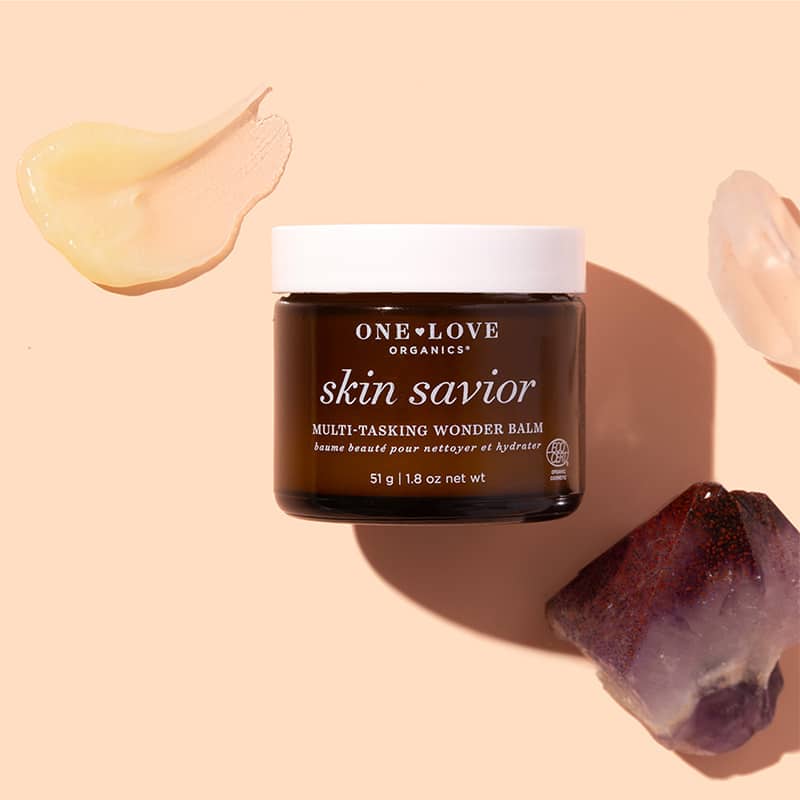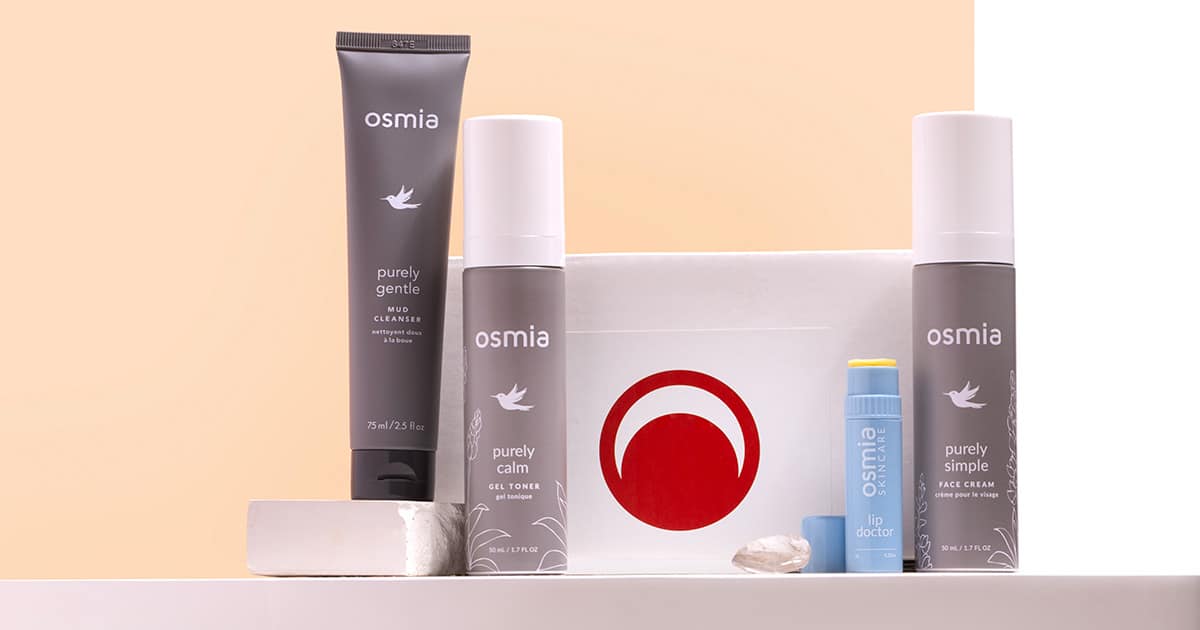
The key is to stay aware of your environment and lifestyle choices, and to know how to nourish, rehydrate, and protect vulnerable skin with products that have been approved by the National Eczema Association. “Forced air, hot showers and cold weather all pull water from our skin,” Rogers says. “When the skin is dehydrated, it becomes a less effective barrier and chemicals will penetrate it more easily. This increases the risk of irritation and eczema flares, even with products you have used for months without a problem.”
To help care for—and prevent—sensitive, dry, eczema-prone skin this winter, these are Dr. Rogers’ top tips and eczema remedies.
One: Up the hydration by applying a heavier moisturizer to protect your skin after every wash.
When you wash your face, you need to make sure you follow that step with moisturizer to help replace the oils you washed away. If you are very dry, the heavier the cream, the better. Look for products with glycerin, a powerful humectant that pulls water out of the air and back into the skin, and squalane, a fatty acid your skin can easily absorb (both are in the Doctor Rogers Face Cream). In extreme cases of dry skin, ‘slugging’ with an ointment can be helpful. A few tricks about slugging: ointments do not contain water, so you want to dampen your face or apply a cream (water and oil mixed) before the ointment for added hydration. Also, most ointments have a petroleum base which prevents water loss but does not add oil back into the skin. Our skin cannot absorb petroleum, mineral oil, or dimethicone. You will see a better result if you use a vegetable oil-based ointment like my Doctor Rogers Healing Balm because our skin can absorb those fatty acids and use them.
Two: One of the easiest eczema remedies; avoid long, hot showers and baths.
Prolonged water contact can remove the water-soluble, natural moisturizing factors from the skin. This contributes to dry, irritated skin and can cause eczema flares. Before you get out of the shower, turn down the heat to tepid to help prevent your skin from losing more water when you step out of the humid shower. Dry off and immediately apply a thick, hypoallergenic body moisturizer like Doctor Rogers Body Cream.
Three: Pull back on your topical skin treatments by using less retinol, peels, acids, and exfoliants during the winter months.
Don’t do manual exfoliation of any kind, no matter what time of year, as it’s all too easy to cause micro-cuts which can lead to the loss of water, inflammation, collagen breakdown, skin aging and eczema flares. Yet chemical exfoliation can do wonders for dry skin…. you just need to take it slow. For example, in the summer you might be able to use alpha hydroxy acids, beta hydroxy acids or retinol nightly but into the fall and winter, cut back! You may only be able to tolerate these treatment steps a few nights a week because as your skin dries out, they penetrate better. After any treatment step, always follow with a moisturizer. The same is true for the body, too—cut back on exfoliation. Don’t over wash or scrub in the shower. Remember that shaving counts as exfoliation. If you’re not shaving, use a glycolic or retinol-based body treatment followed by a body moisturizer to ensure the skin does dry out.
Four: Don’t over cleanse!
Instead of cleansing your face in the morning, just splash some water on it and pat it dry before applying your antioxidant serum then moisturizer. When bathing, only use soap on areas like armpits and groin. Hydrating liquid cleansers like my body wash do not have the strong surfactants that can strip the skin of important oils like most soap and are a better choice for all over lathering and shaving.
Five: Stay away from products that contain fragrance, dyes, and other common allergens.
One of the more challenging eczema remedies is to steer away from products with fragrance, but luckily all of the products featured at Beauty Heroes do not contain synthetic fragrance, which can be highly reactive. This is important because when your skin is drier, it absorbs more of what you put on it, making it more likely you will have an unwanted reaction during the winter months. Ideally you would use hypoallergenic products year-round, but this is particularly important when your skin is more sensitive. All of Doctor Rogers products are approved by the National Eczema association, safe to use on the most sensitive of skin of any age while being incredibly effective at hydrating the skin.
Six: Don’t skip the sunscreen
Even though the winter outside is colder, your skin may be absorbing more of the ultraviolet rays, so don’t skip this vital step. I apply zinc-based sunscreen with at least 10% to my face every day. Zinc is a mineral that is soothing to the skin and the best choice for dry, easily irritated skin. Make sure to reapply if you end up in the sun, even on a winter day. I find the powder forms the easiest and encourage my patients to stash them in their purse or car any time of year.

